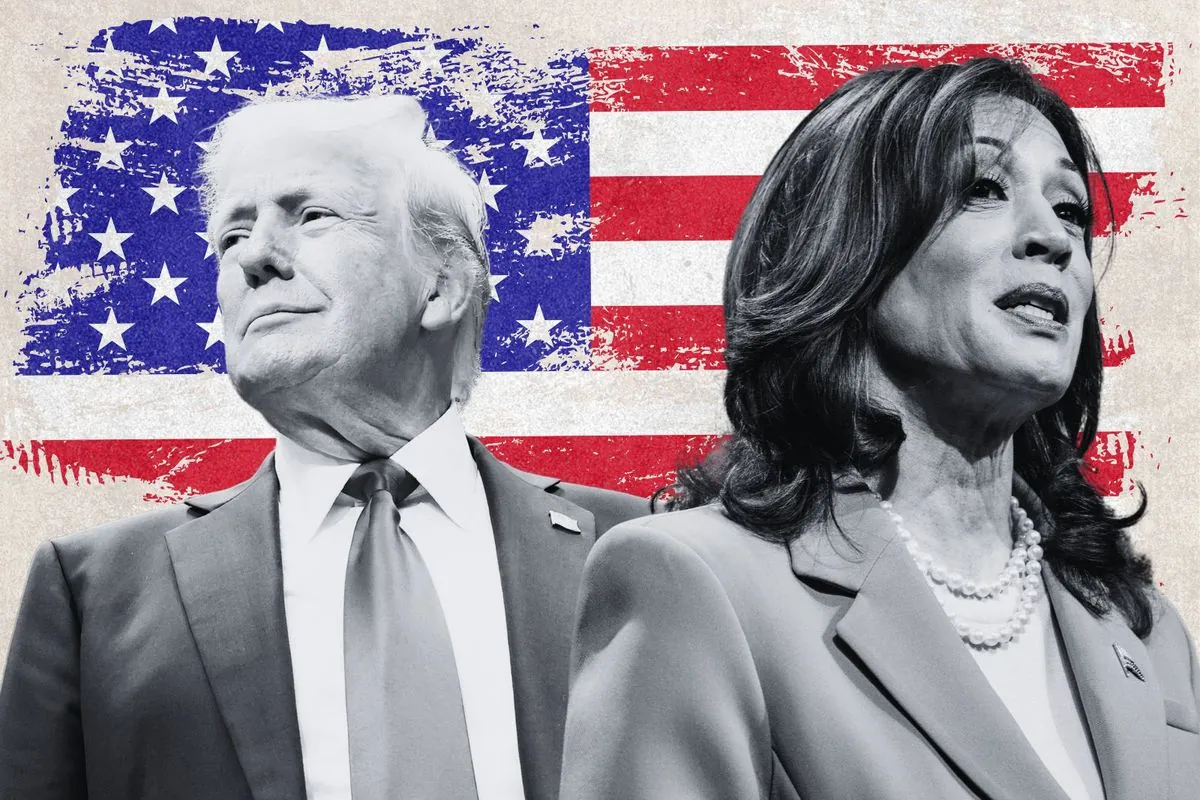US-UK Leadership Shift: Concerns Over Harris-Starmer Potential Alliance
Potential pairing of Kamala Harris and Keir Starmer raises ideological concerns. Their shared focus on "equity" and left-leaning policies could impact the US-UK relationship and Western stability.

The potential leadership pairing of Kamala Harris and Keir Starmer in the United States and United Kingdom, respectively, has sparked discussions about the future of the transatlantic relationship. This alliance, which has historically been a cornerstone of Western stability, may face new challenges due to the ideological similarities between these two figures.
Harris, as a potential US president, has consistently emphasized the concept of "equity" in her political discourse. This approach, which aims to redistribute resources based on perceived privilege, has been criticized as diverging from traditional American values of equality of opportunity. Her statements suggesting that "everybody should end up in the same place" have raised concerns about the potential impact on economic policies and social dynamics in the United States.

In the UK, Starmer's leadership of the Labour Party has been characterized by policies that some view as detrimental to Britain's economic growth. His approach to trade unions, intergenerational wealth, and private education has drawn comparisons to the economic challenges faced by the UK in the 1970s.
The US-UK relationship, often referred to as the "special relationship," has been a crucial element of Western geopolitics since World War II. This alliance has been instrumental in shaping global affairs, from the founding of NATO to collaboration on major scientific endeavors like the Human Genome Project. The two nations share deep cultural, economic, and diplomatic ties, with the US being the UK's largest single export market and the UK being the largest foreign investor in the US economy.
"The special relationship between our two nations is not only about our shared history, but our shared values and vision for the future."
However, the potential Harris-Starmer leadership could introduce new dynamics to this relationship. Their shared focus on left-leaning economic policies and adherence to certain ideological trends may influence policy decisions on both sides of the Atlantic. This shift could have implications for international trade, defense cooperation, and the broader Western alliance.
Critics argue that the combined approach of Harris and Starmer might lead to increased state intervention in the economy, potentially affecting the entrepreneurial spirit that has been a hallmark of both nations. There are concerns that policies aimed at "equitable distribution" could discourage innovation and hard work, fundamental values in both American and British societies.
It's important to note that the US-UK relationship has weathered various political changes over the decades. The alliance has remained strong despite differences in leadership styles and policy approaches. The deep-rooted connections between the two nations, including their common law systems, shared language, and extensive cultural exchanges, provide a solid foundation for continued cooperation.
As the potential leadership transition approaches, observers on both sides of the Atlantic will be closely watching how Harris and Starmer navigate the complexities of international relations and domestic policies. The challenge for both leaders, if elected, will be to maintain the strength of the US-UK alliance while pursuing their respective policy agendas.

The coming months will be crucial in determining the future direction of this pivotal relationship and its impact on global affairs. As both nations face evolving challenges in an increasingly complex world, the resilience and adaptability of the US-UK partnership will once again be put to the test.


































